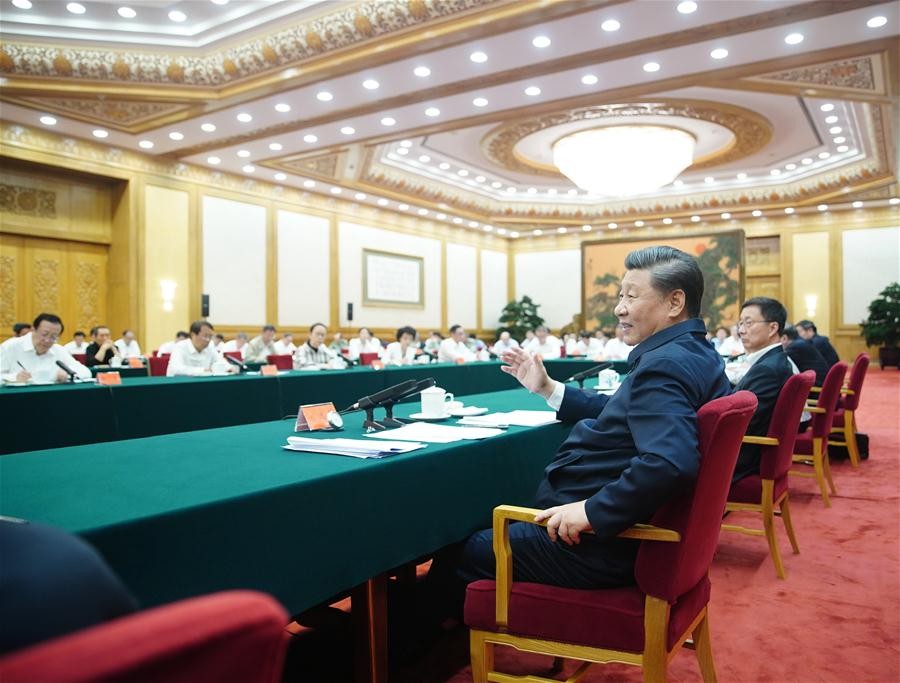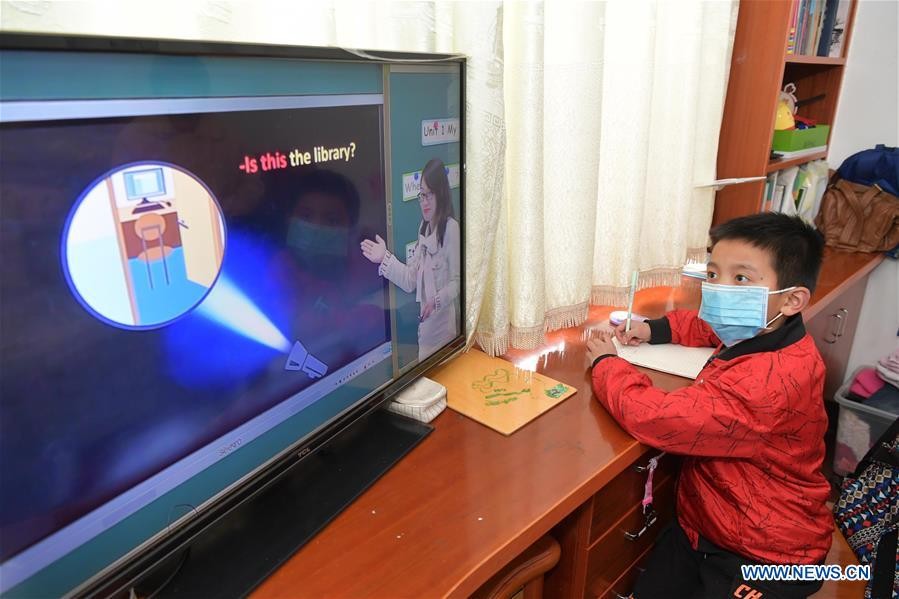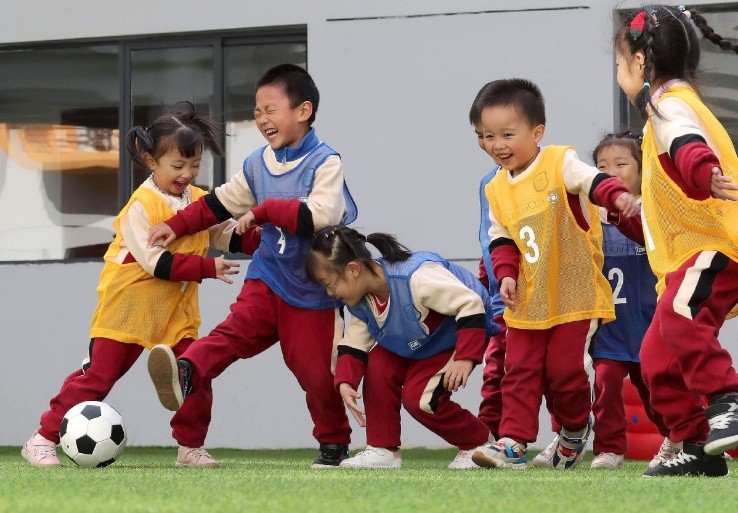Chinese President Xi Jinping chaired a symposium to solicit opinions on the economic and social development in the 14th Five-Year Plan period (2021-2025) from experts and representatives of China's education, culture, health and sports sectors in Beijing on September 22.
Xi exchanged ideas about student studies and health with each of the speakers.

President Xi Jinping exchanges ideas with experts and representatives of China's education, culture, health and sports sectors in Beijing on September 22. (Photo: Xinhua)
Online education
Online classes have been popular with students and teachers during the COVID-19 epidemic.
Hao Ping, president of Peking University, said at the symposium that his university had more than 6,000 online courses last semester attended by students of all ages.

A Chinese elementary school student takes an online English class at home. (Photo: Xinhua)
"We are living in an age of constant change in knowledge, science and technology, and we would be left far behind the rest of the world if totally cut off for three months," said Xi.
"The Political Bureau of the Central Committee also holds regular meetings to learn about the latest developments in the world. We need to construct a flexible, resource-abundant and convenient system of lifelong study."
Cheng Jianping, Communist Party of China secretary of Beijing Normal University, talked about cloud platforms and suggested online education as a "core engine" for future education development.
But Cheng also warned about eyesight deterioration among students.
When he visited a primary school in Hunan Province on September 16, Xi noticed a girl wearing thick glasses and said to all students, “Protect your eyes.”
Hearing Cheng’s words, Xi said, “Now children spend more time in online education. I recently made an instruction regarding the eyesight issue of primary and middle school students.
“We need to summarize the experience of massive online education since the COVID-19 epidemic, upgrade educational concepts and transform the education model by making use of information technology.
“Meanwhile, we should also put students' health first and strengthen physical education in school.”
Student exercise
Bao Mingxiao, a professor at Beijing Sports University, pointed out that some schools focus more on grades than physical health.
Physical education class hours could not be guaranteed, Bao noted. He suggested venues be reconstructed to increase sports facilities.
Xi said before building sports venues, appropriate usage should be studied. Mechanisms and methods of physical exercise should also be tackled.
Xi also emphasized correct sports concepts.
Students should be encouraged to start exercising, such as running, Xi noted. Physical exercise should be scientific with proper protection and preparation.
Through enjoying sports, students can strengthen their body, will and character, Xi said.
Student health
Some children are physically weak, Xi mentioned.
One reason is the acute malnutrition of students in extremely poor areas. The government has responded by offering free nutritious meals. It is said those students are growing stronger and taller.
Another is a lack of exercise among urban students. There should be more exercise activities for urban students. China should tailor different approaches to rural and urban children, Xi said.

Children play soccer at a kindergarten in the southern China city of Fuzhou, Jiangxi Province, in December. (Photo: China Daily)
Zhu Ting, captain of the Chinese women's volleyball team, also attended the meeting. Xi greeted her.
“The women’s volleyball team is the nation's pride and role model," Xi said.
Xi urged the development of basketball, volleyball and football with Chinese characteristics. Football training for minors should be promoted at schools, he said.
China’s fundamental education was “solid,” Xi said. “We have created many miracles based on our education foundation, and we should not belittle ourselves.”
(Translated by Yang Mengzhuo; Original Story from People's Daily; Edited by Zhan Huilan)


